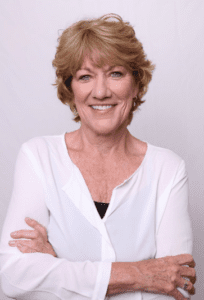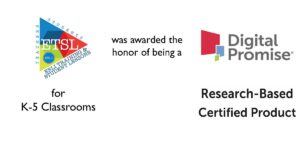Effective communication in general is tricky, and communication between parents and educators takes this to a whole new level. There’s often so much emotion involved, both for the parents and the teacher and/or administrator. I have experienced this firsthand and often think of what I could have done differently (a lot of things I’m sure!) to have made the interaction smoother and the outcome more effective.
To better understand this issue from a teacher perspective, I asked this question on the Science of Reading What I Should Have Learned in College Facebook page:
- As a teacher, what would be your ideal scenario as far as being approached by a parent concerned with their child’s low-level literacy issues- an approach that would be win-win-win for teacher, parent, and child?
The responses helped guide me in writing this blog. Here is a link to the input from teachers.
How do we accomplish effective communication between teachers and parents? In her TEDx talk, Building relationships between parents and teachers, teacher (and parent) Megan Olivia Hall shares so many powerful suggestions and nuggets that convey effective small steps that can be taken. One of her simple suggestions for teachers: “We can reach out to parents.” A suggestion she shared for parents: “Reach out and give us the details we need to make the difference.”
My shock at the discovery of the degree of my daughter’s literacy struggles came via a writing piece of hers. It was displayed on the wall at parent night when she was in 2nd grade. Up to that point, Colleen had gotten 100% on every spelling test but I couldn’t even begin to decipher the 19 horrifically misspelled words in her 39 word story. The very beautiful picture she’d drawn clued me in that the story was about dogs. The teacher walked into the hallway as tears were streaming down my face and asked me what was wrong. When I shared my concerns about the incorrect spellings in the story, she assured me that it was fine. She told me they didn’t focus on spelling. Instead, the philosophy in the district was to ensure creativity wasn’t impeded by concerns with spelling words correctly.
So many questions raced through my head. Why was Colleen able to spell correctly on tests but couldn’t spell those same words in writing? We studied her spelling words for SO long every week and she got A’s but continued to consistently misspell the exact same words in writing. Why could she read the weekly stories she brought home from school (I later learned it was because she was an excellent memorizer) but couldn’t accurately read from unfamiliar books? I became obsessed with having her read and write. She refused to read an unfamiliar book and, if pushed, would throw it across the room. This was COMPLETELY out of character for my otherwise tranquil daughter.
It was 1997 and we’d moved back to Michigan from Guam the previous year. I hadn’t gone back to work in nursing as I was staying home until my youngest went to school, so I began spending all my spare time researching reading. I shared some of the things I was learning with the teacher and other things with the principal. They were cordial and would smile and thank me but nevertheless be noncommittal. At one point, the principal told me that Colleen’s reading difficulties were because we’d moved here from Guam, but since her dad was a doctor she would be fine. After months of digging and learning, and thanks to the book Why Our Children Can’t Read by Diane McGuinness and then Reading Reflex by Carmen and Geoff McGuinness, I taught Colleen to read in just a few hours.
When looking back on my interactions with the teacher and principal, I realize how naïve I was. I didn’t understand their thinking, and they didn’t understand mine. There was a hefty dose of defensiveness on both sides. As communication unraveled, I realized that to help Colleen I needed to take matters into my own hands. Things unfolded as they needed to in the long run, as eventually my daughter became a highly proficient reader and writer. As an added bonus, these experiences led to my life’s mission in literacy. However, I’ve often thought about how that situation could have been navigated more effectively and successfully.
Knowing what I know now-after training and coaching thousands of teachers-I realize that teachers are in an often hopelessly difficult situation. They are tasked with having uncomfortable conversations with parents when there are concerns with a child’s learning and behavior. Teachers are on the front lines of educating children and teaching reading but are rarely part of the decision making of how that is going to be done in the schools they teach in. When things don’t go smoothly, teachers are often the first in line to get blamed though they rarely have the clout to change much of anything.
On the other hand, I’ve also had countless heartfelt conversations with desperate and often traumatized parents who have brought their children to our reading center. Parents, especially when literacy instruction in school isn’t working for their child and the child is suffering as a result, feel hopeless and frantic. When parents, like me, approach teachers or administrators with challenging questions, this triggers many feelings and reactions. Parents are frequently dismissed and then have no idea what to do next. I was one of them. I took the road less traveled and taught my daughter to read myself and also switched my children to a different school. These were not easy decisions and greatly impacted my children as well as their dad and me. They are not reasonable or practical solutions for the masses.
How do we accomplish effective communication between teachers and parents? Mutual respect is the best place to start. Honesty, vulnerability, and grace from all parties are ideal. Insecurities, fears, emotions, and blame, among other things, serve to cloud or even poison communication.
Here are some of the tools I have learned through trial and error that have been helpful to navigate tricky conversations:
- Email first is ideal. That way both the sender and receiver can be focused on the problem to solve. You can read and edit your communications, or even show them to an uninvolved party to get their input on how to make your message clearer, more focused on the issue, or less emotional. Also you can refer back over time – especially to the response as you may glean different aspects at different readings.
- Stick with the facts.
- Phrase things respectfully and positively, with a goal of both hearing and understanding the other party as well as being heard and understood yourself.
- “Help me understand how/why/what…..”
- “I especially appreciate it when you…”
- “There are a lot of things going well with your/my child’s literacy learning (if that is true). Here are some sticking points I see that we could work together to solve to best help them.”
- “I understand you are doing your best. What do you think you and I could do differently to better help your/my child?”
- “I have read about/learned about/ found X, would you be willing to look at it and give me your feedback?”
- “I have been thinking about (child’s) experience with _____ and would love to hear your thoughts about that.”
- “I want to be sure I understand. This is what I heard you say…is that correct?”
This article on effective communication is geared to business and virtual communication but is relevant for all communication. Some of their key suggestions are:
- Focus on the intention or situation, never on the behavior.
- Stay calm. (I know that this can be easier in theory than practice!)
- Be respectful.
- Identify your own triggers ahead of time.
- You will be most effective when you LEARN(Listen, Empathize, Acknowledge, Restate Needs).
Also, the ‘5 steps to manage a difficult situation’ from the article are brilliant! Do take a look at the article – it is short but powerful.
When we look at our own personal interactions with communication between parent and teacher or anyone else, all we have control over or responsibility for is ourselves. We will make mistakes and hopefully learn from them. We can choose to take different actions than what is recommended, as I did with teaching my own daughter and moving my children to a different school. I do wish that I was equipped to communicate better with the teacher and principal, but I did the best I could with the tools I had at the time. If I’d had different tools, the outcome may have been different. On the other hand, it may not have been. That is the quandary; we never know! What I do know is that it is important to keep the best and highest good of our child as the priority.
What does this all look like in action, especially in schools? I have that same question, my webinar on parent/teacher communication includes two teachers and two parents who have navigated challenging parent/teacher communication from different angles and with a variety of results. They will share their stories and experiences as well as answer your questions!
Whether you are the parent or educator, sometimes the effort does not produce the desired outcome, and you will be required to either move in a different direction or accept the status quo. If all adults can be laser focused on the best and highest good of the child, keeping ego and fear based reactions at bay, then there is a much greater chance that both parties will move forward in a productive, beneficial manner.





